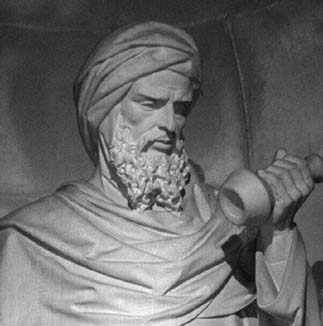The Engineer
Al-Jazari was an engineer and inventor who created many inventions during his time. Before he wrote the book he worked at artuqid court, where he was a chief engineer just like his father. Under the service of Nasir Al-Din he wrote the book of “The knowledge of ingenious mechanical devices”. This was one of the first books to write about the inventions of the world and explain on things should be put together so others could recreate his work.
In the book it talks about 50 of his inventions. The muslim heritage divide it into 6 different categories; water and candle clocks, vessels and figures suited for drinking sessions, phlebotomy and washing before prayers, fountains that change their shape, water raising machines, and other devices. Many of these invention he would get from his predecessors and improve upon them. From some of these inventions he would be known as the father of robotics. He is talked about in an article by Atlantic where they talk about artificial intelligence and they list his machine that played music and served drinks as the first automation machine. Donald Hill who translated the book says the effect of Al-Jazari’s inventions can still be felt in the modern era “The impact of Al- Jazari's inventions is still felt in modern contemporary mechanical engineering.”(Hassani) his inventions have had an impact on the transportation and the development of the modern world. Some of his inventions include measuring blood lost during phlebotomy sessions, water raising device, and machine to serve drinks.
The modern technology that everyone knows today would be crankshaft. Al-Jazari is credited with developing the first crankshaft and gears. You can see the examples of his gears and camshaft on many of his creations one of them being the water raising device,Al-Jazari created 5 water raising devices, where the gears rotate to lift the water and then empty it out. The gears move with the animal rotating one gear which in order moves another part into motion. The gears move from the energy of water, air, or animals.
Al-Jazari is also responsible for creating the first automated machine because of this he is also known as the father of robotics. He made total of 10 machines for drinking and they were automated. One of the drinking machines had five different levels and is in a shape of a citadel. In the bottom level it has a concubine serving with a glass and a bottle. The level above has singers and dancers, level above that has two doors, and on the top there is a horse. “This automat was taken to meetings and put on the floor”(Unat) and it decided on who would be drinking next. The machine had an interval of 20 minutes.
 |
| The Drawing of The Elephant clock. |
The elephant clocked worked by filling up a bucket with water and in the center of that bucket is a bowl with a hole in the middle. The bowl takes half an hour to fill up. There are strings attached to the bowl and while the bowl is being filled up the strings are pulled. Those strings are attached to a mechanism that drops a ball into the mouth of the dragon which moves the elephant operator for showing its been half an hour or full hour. Strings are also attached to the operator which raise the sunken bowl from the bucket. The process starts over here.
From this process you could see how he had created automation. He had made a machine where a human was only needed to reload the balls and everything else was automatic. He had created a robot that would make a sound every thirty minutes. Only human component of the machine was refilling. “This appears to be the earliest example of a closed-loop system in a mechanism. The clock functioned as long as there were metal balls in its magazine.”(Hassani) These were some of the first machines that made it so that people did not have to put in a lot work.
Al-Jazari has had a great impact on engineering with his inventions and the book he wrote. It was one of the first books to show how a design should be laid out. Al-Jazari used his painting skills to draw out the plans for machines and you could easily see how his machines were built. In the book he had fifty devices that others could recreate by just looking at his drawings. Without him creating a crankshaft we would not have had been able to move trains and many other machines that use the same method.
Works Cited
Al-hassani, Salim. "800 Years Later: In Memory of Al-Jazari, A Genius Mechanical Engineer." 800 Years Later: In Memory of Al-Jazari, A Genius Mechanical Engineer | Muslim Heritage. Muslim Heritage, n.d. Web. 11 Apr. 2017. <http://muslimheritage.com/article/800-years-later-memory-al-jazari-genius-mechanical-engineer>.
"Al-Jazari's 800 Year Old Automatic Elephant Clock | 1001 Inventions." 1001Inventions. 1001 Inventions, n.d. Web. 11 Apr. 2017. <http://www.1001inventions.com/media/video/clock>.
Unat, Yavuz. "Overview on Al-Jazari and His Mechanical Devices." Overview on Al-Jazari and His Mechanical Devices | Muslim Heritage. Muslim Heritage, n.d. Web. 11 Apr. 2017. <http://www.muslimheritage.com/article/overview-al-jazari-and-his-mechanical-devices>











